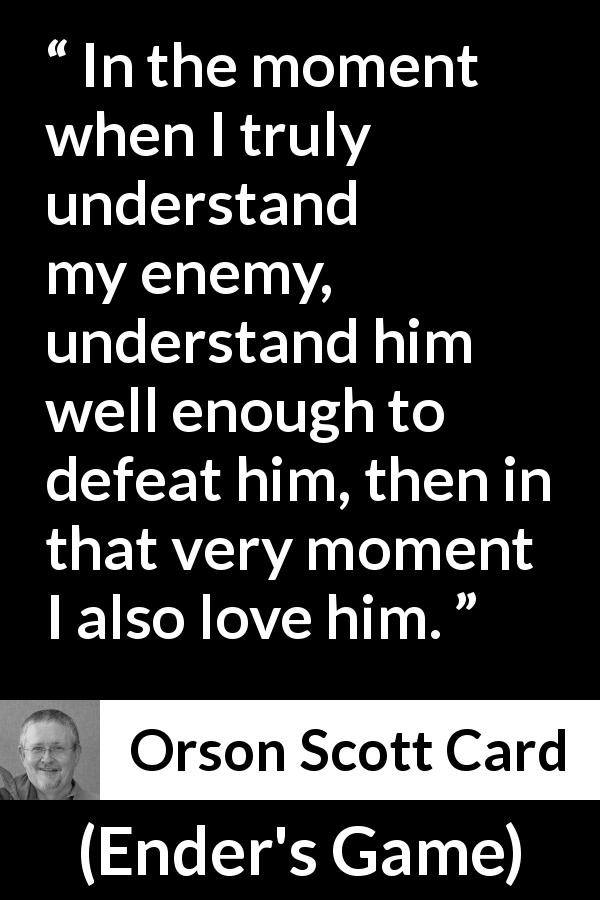Uncritical Theory
The new paradigm we've all been waiting for
Fighting over critical race and gender theory is fighting to die on a hill in a minor skirmish of a minor battle in a war that was already decided 50 years ago, when they successfully convinced you that “critical thinking” was synonymous with “good thinking”.
Critical is a sneaky word, which, like all other political buzzwords of our time, relies on having a dual definition: common parlance, and academic/technical.
Like “racism” in common parlance means “being a dick to someone on account of their race”, in “academic” parlance it means an abstract, impersonal “systematic” (another case) constellation of relationships. In common parlance it is a concept or idea, a person can adopt or exemplify in his actions or thoughts. In academic parlance it is a relationship ultimately separate from the individual. Being a “leftist” is simply recognising this dual meaning of a word, and either a) genuinely deluding themselves into thinking they are the only person in the world smart enough to realize it, or b) pretending to believe so.
Everyone who plays this rhetorical game is a leftist. Other examples include, systematic, equality, gender, -phobia, etc etc etc. literally all the buzzwords of our day. They are called buzz words, because this dual interpretation causes a mental “buzz”, an irritation, and to engage in this game is to weaponize that, to deliberately use it to cause micro-cognitive dissonance. Micro, another example.
“Critical” in common parlance means “rigorous” “diligent”. “Critical thinking” is supposed to be something we should encourage in children’s education - you don’t want your child to be stupid, right? You want them to be able to think for themselves, right? To look at the facts and make up his own mind, right? To be an Independent Thinker? That’s what “critical” thinking means, right?
The dual meaning of Critical is “negative interpretation”. A “critique” of a text or cultural artefact is “trying to poke holes in it”. “anti-thesis”-ing it. It is intellectually destructive. It is the part of the human faculty that desires to take things apart to see how they work. The left side of the brain.
At my time both as a student and tutor in educational institutions, there was always an unanimous agreement that more should be done to encourage critical thinking in children. Any philosophy student you can find will rave about the importance of teaching formal logic and critical thinking in grade schools. “Why in the world aren’t we doing this”, he will say, as he finishes his first semester of formal logic, and has his mind blown. This idea is simply taken for granted in our era. Which is ironically, a deeply uncritical belief. But I am getting ahead of myself.
If you listened to Maynards song above, that strikes to the key of the issue. I tried to get into it earlier but at the time the thought was unfinished, I was still working it out.
The problem with taking things apart to see how they work is, if the subject is something that is alive, you are performing an autopsy and expecting the patient to live afterwards. There is no ultimate solution and you never hit a logical atomic level where you find monads, and can finally put the project to rest. There is no rock bottom. Reason, and by extension critique, is a bottomless hole. there is a human satisfaction in this: we take a primal pleasure in cutting things in two. Reason itself is a sword, and wielding a sword changes a man before he ever uses it. Knowledge is power, we say, but we also know that a weapon justifies itself: if you build the atomic bomb, it will be used. If you build fema camps, there will be a global pandemic. If you have a solution, you go looking for a problem: Power always justifies itself. It can’t help it. It’s powerless to stop itself.
What the modern notion of “critical” is at it’s simplest, is a brand. This is easily recognizable by the way that we currently see it being applied to sell things: You could have just called it race theory. Why didn’t you? Critical sells.
More specifically it is a re-branding. Of “neurotic”. Who/whom: When they do it, it’s neurotic/conspiratorial thinking, when we do it its “critical”. You see?
On a human level, being “critical” is to cast doubt, cast aspersion. To want to “encourage critical thinking” is to want to turn people into neurotics, and it comes from a place of envy and resentment, to want to “encourage” it in children. Children are born uncritical thinkers. “Critical thinking” can never be taught, only induced. You can turn anyone into a neurotic if you torture them enough. The basic notion underlying our approach to schooling today is that this also magically is supposed to give them a higher capacity for abstraction, which is something completely else entirely - and it is directly in opposition to “critical thinking” - there more “critical” your thinking becomes, the more you paint yourself into a little neurotic corner, and never get anywhere.
The very thing we value about children in the first place, their so-called innocence, is an absence of neuroticism. “critical thinking” is learned helplessness, learned neuroticism.
All attempts to push back against the critical forces of this world are fighting fire with fire, employing critique. Being critical of “critical theory”, and so forth. This is why I always say, they don’t want to win, they just want you to play their game. Because the end goal of critique, of reason, is further critique, further reason. It’s a bottomless hole, looking for it’s own justification, and people who are falling to hell only wish to drag you down with them. There is no other point to it. Misery loves company.
To push back against critical forces of the world, it is not enough to react against it. we must pull the wittgensteinian manoeuvre, and “go back” before the critical turn, and correct our mistake before it happened. We musn’t “answer the question” of critique, we must go back and ask a different question. All answers are nonsense, because the question is wrong. This is also what is commonly referred to as the need to have a positive aim rather than merely being reactive to the forces in power. On a political level, but also on a personal level.
From where I’m sitting, that’s the enlightenment. The “cult of reason”, the French Revolution. That’s the point where history breaks apart, and humanity starts worshipping their own bloodlust. You have to, at least, go that far back. I think ultimately the whole thing ties into the translation of the bible from Latin and Greek into the vulgar languages, which is a kind of tower of babel moment in human morality, and what we are ultimately trying to do here is to attempt to re-establish a religious language.
“That which can be asserted without evidence can be dismissed without evidence”, is a kind of popular memetically resonant slogan of reason-worship. It’s pleasant to say and think. But here’s my big new idea: It can also be believed. You can just choose to. In fact, what are you going to do to stop me? You and what army? I’m going to believe it and there is not a single thing you can do to stop me. Make Me. Bitch.
That which can be asserted without evidence, is based.
That which can be asserted without evidence, that is, what which is not based on something else - is not “unbased”, it is just based, without signifier. It is self-based. Pre-based. Always-already based. Power is it’s own justification.
The reason why the famous gigachad is memetically resonant, is because he exemplifies uncritical theory. The jokes we tell employing his image is not about embracing contradiction, it’s about rejecting contradiction. Embracing contradiction is just irony. But Gigachad is not ironic. He is un-critical.
Uncritical theory is just bee-ing yourself. Uncritical theory is to act with purpose. Uncritical theory is will-to-power. Uncritical Theory is madness and life and struggle and purpose. Uncritical Theory is just going up and talking to her. Uncritical Theory is being in love.
If you employ critical theory while being in love, you will not get the girl. You will doubt yourself into inaction, and convince yourself you don’t even deserve her, and even if you weren’t such a piece of shit, she wouldn’t even like you in the first place. Uncritical theory is asking her what she thinks about it.
The only possible way to ever approach another person, is through uncritical theory. The critical mindset is solipsistic: I know what she thinks, better than she herself. And you might. That might be true. But it’s the wrong question.
When Critical Theory takes things apart and splits things into two, Uncritical theory builds, it takes things and makes them a cohesive whole. Where the left side of the brain deconstructs and deduces, the right side of the brain synthesizes and makes whole.
Most importantly, Uncritical Theory is understanding.
Critical thinking is antithetical to understanding – which is why they famously can’t define “knowledge”. To understand something, you have to be able to believe it. If you have high neuroplasticity and capacity for abstraction, you can believe it for a minute, and then step back and inspect it, with the “inside scoop” so to speak.
This is what mean famous “enders game” quote (I have never read enders game).
And this is ultimately the motive behind critical theory, and the core of reason-worship. It is antithetical to love.
It is reasonable to hold a grudge. It is reasonable to hold a grudge against your parents, for having failed you in some way. It also happens to free you from the obligation to love them. Forgiveness is madness. But it’s also the only cure for loneliness.
Reason-worship becomes alienation, because it frees us from our existential obligations to one another. To our family. To other people. Neighbours. It excuses you, it gives you an out to discard your love. It liberates you from Love - which people today feel as a great weight, they are unable to bear.
To be able to understand another person, you have to love them. At the very least, temporarily. To understand a theory, or a concept, you have to love it. It is a mechanical necessity. To understand another’s frame of mind, to “empathize” (another buzzword), to have a theory of mind for another person, you must love them. And loving is vulnerable. Loving is a risk. You have to risk everything. Love always changes you.
And this is why, when I say, the revolutionary is motivated by sadism and bloodlust - I say this, because when I try to adopt his beliefs, the only way I can make sense of it, is by embracing my own sadism and bloodlust. To believe what they proclaim, I have to want to kill for pleasure. And I can make myself believe it. For a little moment.





Thanks for a fine essay! I have only one criticism (pun intended). Reason is *not* an erratic irrational inflammation craving dominance and control. Its sole motive is curiosity, its sole passion the joy of understanding. It's egoless, unbiased, sociable and inexhaustible. It's *not* our 'based self', merely our tool. Yes, the negative attributes you mention are linked with it; but only because negative people who use (abuse) reason have those attributes. Don't conflate a tool with its users. But that's just my opinion! It's only a word, anyone can define it according to taste.
Really really good and coincidentally very close to my beliefs.
Will read this out loud to some people.